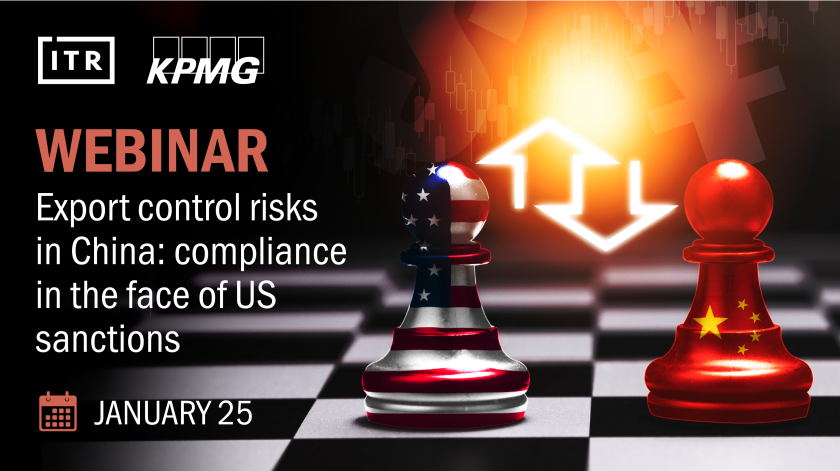Given the persistent and far-reaching impact of the decoupling and geopolitical tensions between the US and China, businesses are encountering multifarious and formidable challenges of an unprecedented nature. These include tightening export control measures, mass sanction designations, and other national security-related restrictive measures. Also, the Chinese government has been updating and reinforcing its export control and sanction regimes to safeguard its own national security.
In light of the current trends, it is beneficial for industry practitioners, particularly multinational corporations, to carefully review their business operations to identify any potential areas for improvement. This can help them to address any compliance and supply chain issues that may arise, while also ensuring that they remain compliant with any applicable export control and sanction regulations.
In this webinar on January 25, Harry Zhang, a partner at KPMG China, will discuss China's new export control and sanction policies, and share his perspective on the latest US sanctions against China.
The presentation will include cases that demonstrate common compliance and risk control errors that businesses might face. The objective is to ensure that companies remain in line with applicable regulations and standards, while reducing their exposure to risk.
Key topics that will be covered include:
The overall introduction of the export control regime in China, and the counter-sanctions and blocking measures regulations;
The US export control and sanction measures targeting China and the corresponding impact on businesses; and
The new regulatory and risk environment for multinational corporations in China and typical compliance omission cases.
Sign up now for this free webinar and learn more about the impact of the new compliance environment confronting businesses with operations in China.












